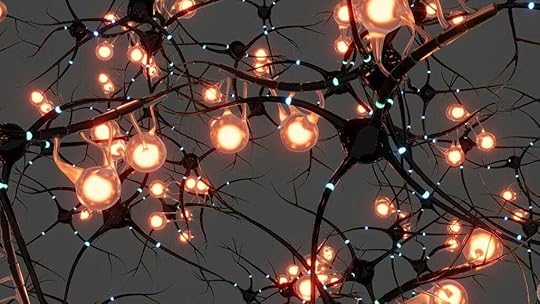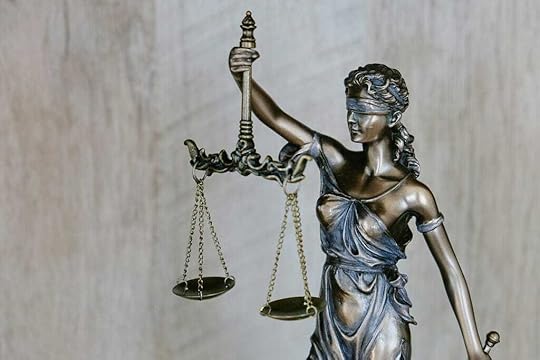Privacy No Longer Exists — Who cares?
Your inalienable right to privacy has been alienated. What happens next?
 Photo by Etienne Girardet on Unsplash
Photo by Etienne Girardet on UnsplashThey know where you are. They know where you’re parked. They know who you’re with. They know your credit rating. They probably know your heart rate — right now — and whether or not you’re awake. Soon they’ll know brain waves/EEG (electro-encephalogram).
Whether or not you care probably depends on who has the information and how they’ll use it. Pick your bogeyman — the government, huge corporations, your life/health/car insurance company, your bank, your spouse’s private investigator — they can all get your information.
I leave my cell phone’s GPS positioning turned off. Still, if I’m connected to wifi or in a well covered area, my carrier and those who hack it can triangulate base stations and isolate me to within a block. If I’m out in the sticks, the least they know is the time I was last near a base. In any case, they know where I’m parked.
Police surveillance cameras all but cover the United Kingdom. There are fewer in the US, but those deployed by companies and homeowners make up the difference; most store entrances have them, every ATM machine has at least one, public transportation has them (and some even function!).
 Photo by Bhautik Patel on Unsplash
Photo by Bhautik Patel on UnsplashEvery person packs biometric signatures — fingerprints, retina, voice, scent, walking gait, and the ultimate: your connectome — and we’re surrounded by devices with microphones and cameras that may or may not be active. Most microphones are active all the time, if only to catch their interrupt phrase — “Ok Google?”, “Alexa?”, “Hey Siri” — or at least that’s what your-most-feared-bogeyman would have you believe. Still, if the battery has charge, they’re capable of analyzing every sound.
Always assume that you’re being watched.That sentence might send chills down your spine, especially if you think incognito is the best way to go.
Someday, maybe next week, a teenager won’t understand the concept of being alone, or that other people might not know what they’re doing and who they’re with. They’ll have recurring nightmares about walking around town without anyone knowing their opinion.
IoT (internet of things) gadgetry has destroyed privacy — fitness watches, Ring doorbell/cameras, your refrigerator.
 Photo by Onur Binay on UnsplashWhat are you hiding?
Photo by Onur Binay on UnsplashWhat are you hiding?Successful crimes require privacy, so one could argue that privacy is less valuable than safety, after all, “What are you hiding?” Surveillance cameras help police solve crimes, and police officers who wear cameras receive far fewer complaints than those whose actions are not recorded.
I’m not sure why I don’t want others to know my actions, but I don’t. I must be hiding something, right? Maybe I don’t want you to know that occasionally (but only when absolutely necessary!) I stick a finger up my nose and do some house cleaning, sometimes my boxer shorts need a little adjusting, or my butt itches — see? I’m hiding it as a matter of courtesy. Maybe you’re guilty of these same crimes. Please don’t tell me.
Identity recognition can be run in real time on vast quantities of video and audio data, even without AI. The data can be sorted into places, times, associations with other people, proximity to crimes, and likelihoods that you have participated in a “crime.” I put “crime” in quotes because whether or not an activity is a crime depends on the observer. For example, if you ticked the “no tobacco” box on your life insurance application, then smoking is a crime for you — bang, your survivors get nothing because your insurance company found video of you firing up a stogie five years ago when your favorite team won the title.
 Photo by Vlad Deep on UnsplashWe face a potentially civilization-crippling problem as we enter the era of comprehensive surveillance.
Photo by Vlad Deep on UnsplashWe face a potentially civilization-crippling problem as we enter the era of comprehensive surveillance.If the information gathered is kept secret by corporations/government/your-most-feared-bogeymen, then that information can be selected and edited to present the bogeymen in a positive light, no matter how evil their actions, just as it can be used to present you in a negative light no matter how altruistic your actions.
Just one inalienable right stands between us and utter manipulation by the bogeyman: our right to look back at them. In 2011, the US First Circuit Court of Appeals ruled in Glik v Cunniffe that citizens have the right to record video and audio of police carrying out their duties in a public place. Notice that the Supreme Court has yet to rule.
 Photo by Tingey Injury Law Firm on Unsplash
Photo by Tingey Injury Law Firm on UnsplashTransparency is our only safeguard and we, the people who develop surveillance technology, are obligated to demand it!
[image error]


